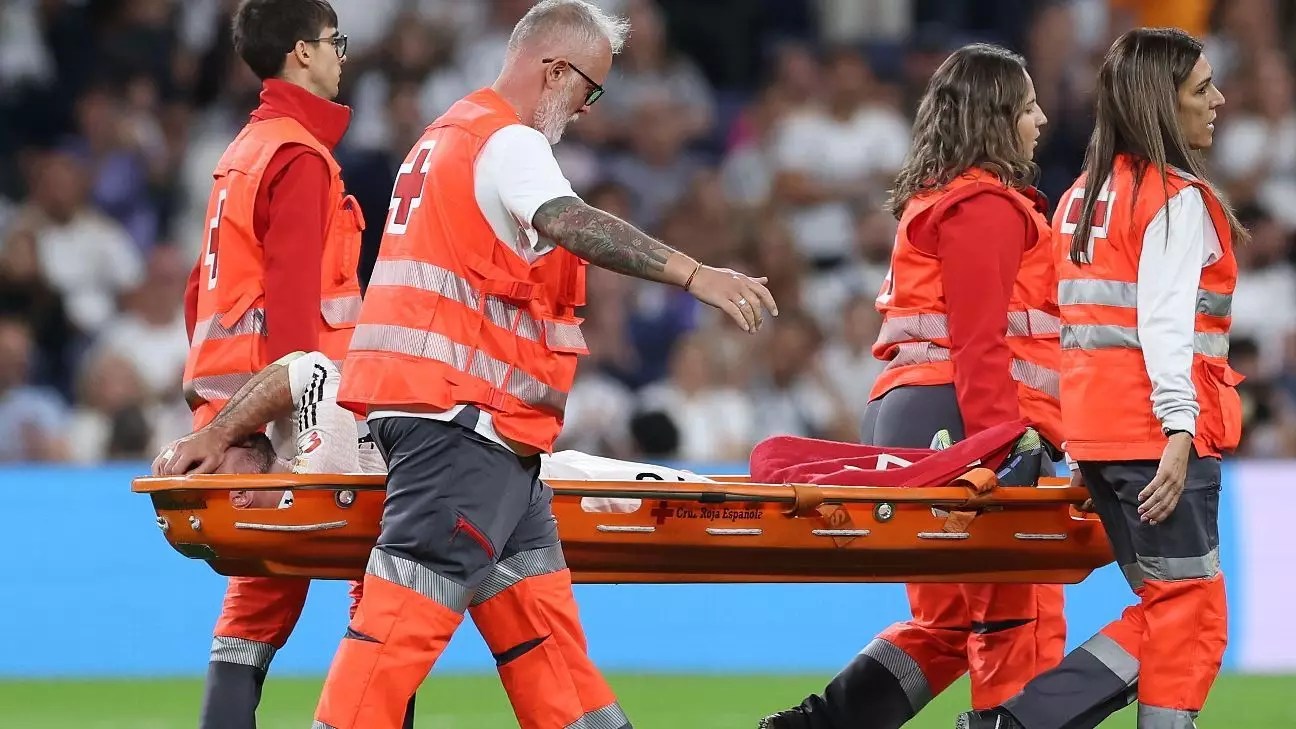Real Madrid’s recent injury to Dani Carvajal has sparked a pressing search for a suitable right-back as the LaLiga giants aim to maintain their competitive edge in both domestic and European competitions. With Carvajal sidelined for an extended period due to severe knee injuries, the club’s management faces the daunting task of finding an immediate yet effective replacement in the forthcoming January transfer window.
Carvajal’s injury, sustained during a match against Villarreal, has been deemed serious, involving a ruptured anterior cruciate ligament, collateral ligament, and popliteus tendon in his right leg. This misfortune not only affects Carvajal’s career in the short term but also presents a strategic challenge for Real Madrid’s coach, Carlo Ancelotti. With surgery required, the timeline for recovery is uncertain, meaning the club must quickly adapt its defensive strategy.
In light of this setback, Lucas Vázquez emerges as the sole experienced right-back left in the squad. While he possesses considerable talent as a converted winger, there are concerns about his ability to manage the demanding right-back position over a full-length season. The lack of depth at this crucial position raises questions about the effectiveness of the defensive line throughout Carvajal’s absence.
Real Madrid has reportedly received offers for over ten potential right-back candidates since the news of Carvajal’s injury broke. However, the complexity of securing a top-tier player mid-season remains a challenge. Most attractive options are currently tied to their respective clubs, thus making negotiations tricky.
One candidate that has caught Real Madrid’s attention is Liverpool’s Trent Alexander-Arnold, who is known for his attacking prowess and extensive experience. Although Madrid had initially viewed him more as an opportunity rather than a necessity, Carvajal’s injury has shifted this perspective. Alexander-Arnold’s contract expiration next summer might make him an appealing option—but whether he is willing to leave Liverpool at this stage is still unclear. The Premier League club’s strong current form adds another layer of difficulty to any potential negotiations.
Real Madrid’s need for defensive reinforcement isn’t a new issue. Having narrowly missed out on signing promising center-back Leny Yoro last summer, the club’s defensive roster already appears thin. As they look for alternatives, names like Alphonso Davies have emerged as long-term targets, although securing a deal with Bayern Munich before 2025 seems unrealistic. The complexities of modern football negotiations imply that obtaining immediate replacements will be a significant hurdle.
Furthermore, Ancelotti’s preference for coherent squad strengthening cannot be overstated. He recognizes the pressing need for reinforcements in defense beyond just finding a right-back. The reliance on key figures such as Éder Militão and Antonio Rüdiger is coupled with the ongoing recovery of David Alaba, who adds another layer of strain to the back line.
An interesting angle to consider is the club’s strategy regarding younger talents in the market. By actively searching for long-term prospects, Real Madrid could set themselves up for sustained success while mitigating present deficiencies. However, this approach also requires a nuanced assessment of whether current squad members can perform effectively until new arrivals integrate.
As the January transfer window approaches, the concerted effort to secure a right-back will not only shape this season’s outcomes but also redetermine Madrid’s defensive architecture for years to come. While Vázquez can hold the fort temporarily, relying on him as a starter could present challenges against top-tier opposition. The club’s ability to navigate these complex transfer dynamics will be a litmus test of their strategic foresight in the coming weeks.
Real Madrid stands at a pivotal crossroads. With Carvajal’s injury exposing existing vulnerabilities, how effectively the club addresses their defensive issues will be crucial for their ambitions both in LaLiga and in Europe. The quest for a reliable replacement encapsulates the broader challenges of elite football, where injuries, contracts, and market strategies intersect.


Leave a Reply